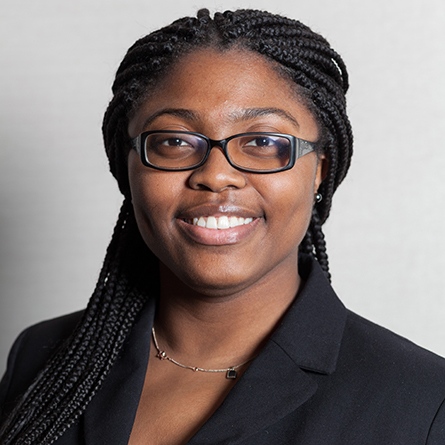If you had asked a 13-year-old Brandy Darling ‘19 what she would like to be when she grew up, she would have named a series of ambitious career choices, such as pastor or professional ice skater. By the end of the first semester of her final year at Conn, she has set herself on a detailed and stringent pathway toward a career in diplomacy– specifically as US Ambassador to China. As a finalist for the Thomas R. Pickering Foreign Affairs Fellowship this year, Darling will benefit from education and networking opportunities that will put her career on firm footing once she graduates this spring.
In mid-June of 2018, Darling applied to the Thomas R. Pickering Foreign Affairs Fellowship. Named after Thomas R. Pickering, a former U.S. Ambassador to the Russian Federation, India, Israel, Nigeria, El Salvador, Jordan and former U.S. Ambassador and representative to the United Nations, the fellowship nurtures individuals interested in careers serving U.S. interests abroad. The fellowship is managed through Howard University and seeks to mentor underrepresented members of various ethnicities, genders, and social and geographic backgrounds for positions within Foreign Services. At the completion of foreign service entry requirements and a two-year master’s degree program at a partnering member school, which include the Woodrow Wilson School of Public and International Affairs at Princeton University and Frank Batten School of Leadership and Public Policy at the University of Virginia, participating individuals have the opportunity to work as a Foreign Services Officer in either a domestic capacity in Washington, DC or an international capacity in a U.S. embassy or consulate. In addition, the fellowship grants financial coverage for the two-year master’s degree program and $16,000 stipend each academic year.
While the responsibilities of Pickering fellows are demanding, Darling’s impressive background compliments Pickering expectations well, and she remarks that her entire college career has been centered around becoming a Pickering fellow. Darling majors in economics and East Asian studies with a concentration on China and a minor in applied statistics. Additionally, she is a CISLA scholar. During her CISLA internship, she studied abroad in China while interning at the African Chamber of Commerce in Shanghai, but her experience abroad is not limited to this single stay. Darling has made global learning an indispensable aspect of her learning experience, having participated in two other learning programs in China: APSA (Americans Promoting Study Abroad) during her junior year of high school and CLS (Critical Language Scholarship Program) during the summer before her sophomore year at Conn. It was during her first experiences abroad that she learned about the Pickering Fellowship. While participating in APSA, Darling was introduced to a Foreign Services Officer who ingrained the potential of becoming a Pickering fellow in her future. The second time she encountered a Foreign Services Officer, the acting diplomat in residence was less uplifting saying, “Don’t worry. They only accept 10%” when she told him of her interest in the Pickering Fellowship. She remarked that the advice was discouraging, but says, “When people doubt me, I have to do it.”
This mindset would prove extremely valuable during her application which she recalls as “nerve racking.” The 600 word personal statement was daunting as she was forced to confine her experiences to a word count, but the assistance and guidance she received from current Foreign Services Officers and Connecticut College Deans was invaluable to the application’s success. Additionally, throughout the process, her motivation derived from the representation of black individuals within previous programs and currently within Pickering. “I was very lucky black people were leaders of all the programs I did,” she says. The fellowship’s connection with Howard University is a reflection of attempts to diversify the State Department. Within the State Department, 5.4% of Foreign Services Specialists are African-American, 6.7% are Asian, and 5% are Hispanic. This demand for representation which reflects U.S. demographics has influenced Darling’s specific aspirations to change the international definition of what it means to be an African-American, specifically focusing on the perception of African-American women. She acknowledges the task is ambitious but states, “I can’t do it by myself of course, but being in a high position, especially being an ambassador, that’s a good start.”
As a current finalist for the Pickering Fellowship, Darling has advanced to the security clearance process which will be administered throughout the upcoming months. The security clearance process will determine the suitability of finalists and is done through three separate reviews. While this particular aspect of the application has instilled slight anxiety, Darling has reflected on the admirable future ahead of her. She listed Princeton, Georgetown, UC Berkeley, Columbia, and UT Austin as potential options for graduate school in her pursuit of a Masters in data services and recognized South Korea, India, Italy, and the Dominican Republic as countries she would like to be stationed. During her time in graduate school, she plans to learn French in hopes of diversifying the multicultural experiences she is able to understand and in anticipation of research opportunities in West Africa. While she is hesitant about returning to China soon, becoming the Ambassador to China continues to be her dream job. Darling provided two points of advice to individuals interested in pursuing similar pathways. “Number one: Stay out of trouble [in light of government security reviews]. Number two: Learn a language to understand people.” •










